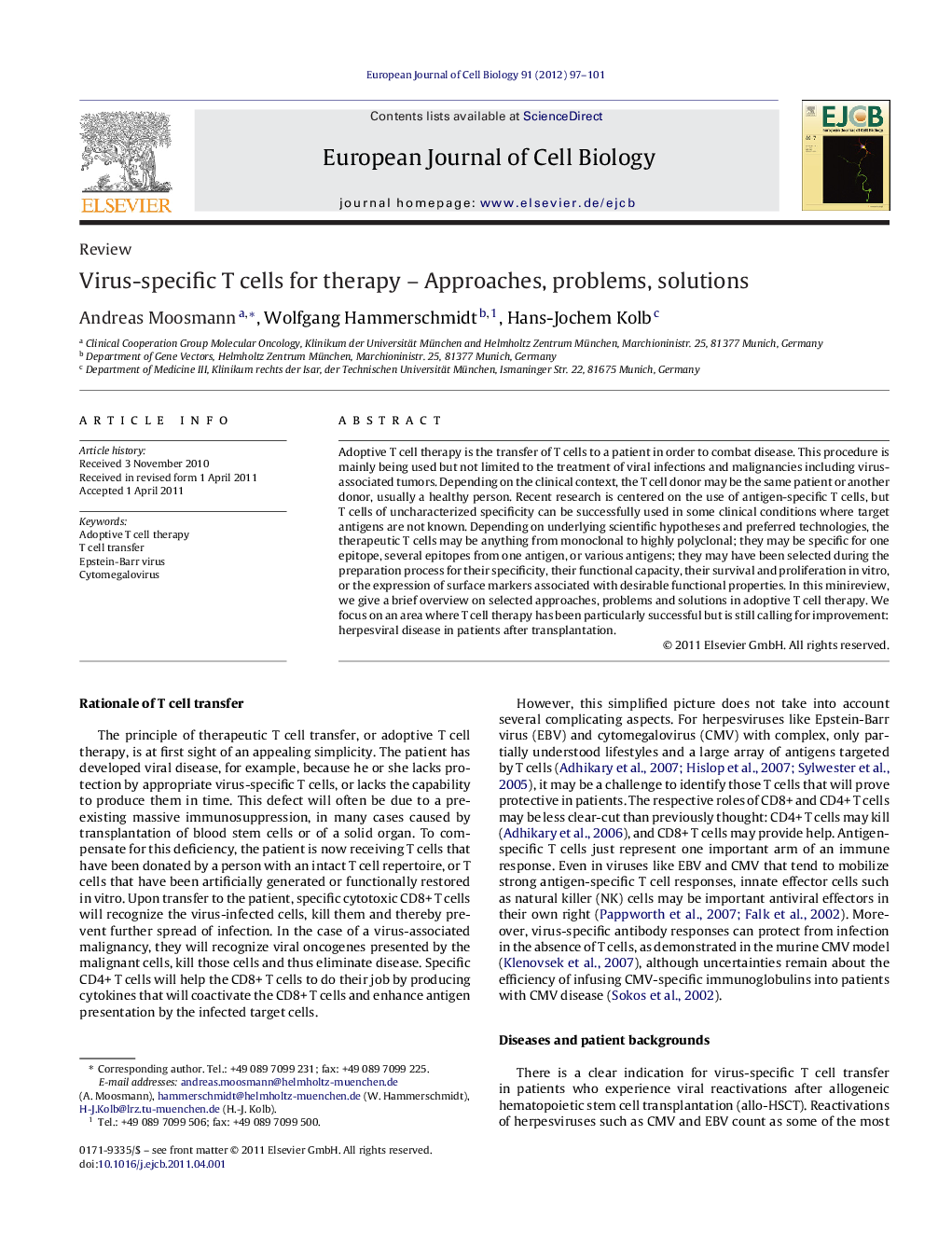| Article ID | Journal | Published Year | Pages | File Type |
|---|---|---|---|---|
| 2178402 | European Journal of Cell Biology | 2012 | 5 Pages |
Adoptive T cell therapy is the transfer of T cells to a patient in order to combat disease. This procedure is mainly being used but not limited to the treatment of viral infections and malignancies including virus-associated tumors. Depending on the clinical context, the T cell donor may be the same patient or another donor, usually a healthy person. Recent research is centered on the use of antigen-specific T cells, but T cells of uncharacterized specificity can be successfully used in some clinical conditions where target antigens are not known. Depending on underlying scientific hypotheses and preferred technologies, the therapeutic T cells may be anything from monoclonal to highly polyclonal; they may be specific for one epitope, several epitopes from one antigen, or various antigens; they may have been selected during the preparation process for their specificity, their functional capacity, their survival and proliferation in vitro, or the expression of surface markers associated with desirable functional properties. In this minireview, we give a brief overview on selected approaches, problems and solutions in adoptive T cell therapy. We focus on an area where T cell therapy has been particularly successful but is still calling for improvement: herpesviral disease in patients after transplantation.
